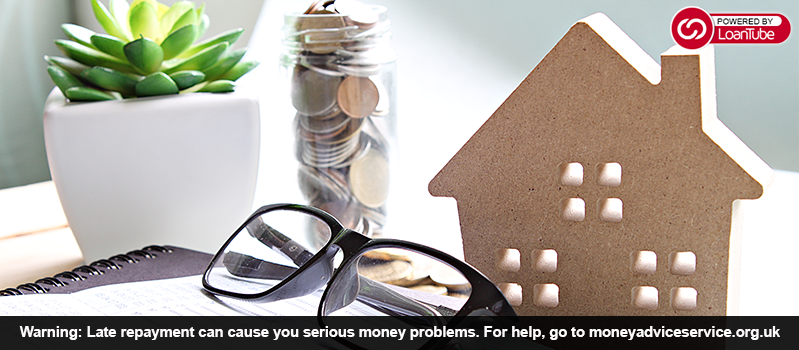Urgent necessity prompts many to do things.
-Miguel de Cervantes Saavedra
That’s true. Whenever we are hit by a financial emergency, our sudden instinct is to arrange required funds to manage the expenses. Homeowner loans are taken out by people who need money for fulfilling their monetary obligations. However, before making any firm decision, you must know the complete mechanism of this loan to get the best out of it.
There are two types of homeowner loans:
- Secured homeowner loans
- Unsecured homeowner loans
Secured homeowner loan, as the name suggests, is tied to your home. That means you have to use your home as a security to avail the loan. While an unsecured homeowner loan doesn’t need any kind of security to avail the loan.
In this article, we will discuss:
- What is an unsecured homeowner loan?
- How does an unsecured homeowner loan work?
- When should you consider taking out a homeowner loan?
- Pros and Cons
What is an unsecured homeowner loan?
An unsecured homeowner loan neither requires any collateral nor any nominee as a guarantor. People generally borrow this type of loan as it doesn’t require any collateral or guarantor. Finding a guarantor to co-sign the loan application with you is difficult at times. Typically, there are two subtypes of homeowner loans: (i) short-term, and (ii) long-term. With a short-term homeowner loan, the borrower can take out a loan for a period of a year or less. And long-term homeowner loans can be taken by borrowers who are looking to borrow money for more than a year, the period generally ranges from one year to seven years. If you are looking to borrow money for more than a year, you can borrow from £1,000 to £35,000.
How does an unsecured homeowner loan work?
Figure out how much amount you need for your purpose. Add the amount by taking into consideration the rate of interest and the APR. This will help you in determining the overall cost of borrowing. While applying for a homeowner loan, you must know two things: how much you need and for how long you need it. Set the repayment period accordingly to spread the cost over several months. The repayment is done in monthly instalments.
You have to ensure the repayments. If you fail to meet the repayments on time, your credit score will be damaged. A damaged credit score becomes a stumbling block on your path to borrow money for up to the next six years. Therefore, only borrow money when you are sure about the repayments.
When should you consider taking out a homeowner loan?
1. To consolidate debts
If you have multiple existing debts and you are finding it difficult to manage them properly, an Unsecured Homeowner Loan can help you consolidate your debts. You have to make only one repayment against all other debts that you have.
2. To improve your credit score
A bad credit score is a financial nightmare. A credit score indicates your financial behaviour and how well you manage your personal finances. With a poor credit score, it becomes challenging to find a loan for your needs. If you have a bad credit score and your loan application gets approved by the lender, ensure timely repayments to boost your credit score.
3. To make home repairs
A home is most likely to be one of the biggest investments of our life. Time to time maintenance is essential to improve its lifecycle. You can use the amount received to make necessary home improvements such as – boiler replacement, adding a conservatory, converting your loft, upgrading your kitchen, etc.
4. To resolve financial emergencies
Pay for your kid’s school fees, repay the outstanding credit card bill, and repair your vehicle that has broken down in the middle of the month. You can use the loan amount for all such expenses as well as there is no restriction on the spending.
Pros of a homeowner loan
A homeowner is a great option if you are looking for ways to borrow money easily. There are several advantages of this loan and a few are listed below:
1. Available online
You do not have to worry about stepping outside your home to get the money. Homeowner loans are available online and can be availed by simply visiting the website of the lender or credit broker and applying by submitting the application form.
2. Manageable repayments
The cost of repayments can be spread over several months allowing you an ease to manage your regular expenses. You can balance the repayments and household expenses without any trouble.
3. No security
The best part of this loan is you do not have to use your home or any of your valuables as security at the time of borrowing. So, if due to some circumstance, you miss making the repayment, your property will not be possessed by the lender.
Cons of a homeowner loan
There are two sides to every coin. Despite their apparent appeal, these loans have their fair share of disadvantages as well and a few of them are listed below:
1. High rate of interest
Generally, the rate of interest on an unsecured loan is high as compared to a secured homeowner loan. Because the lender is taking the risk of lending money without any security and guarantor.
2. Prepayment penalty
There are some lenders who charge a penalty if you repay the loan ahead of the agreed date. However, there are some lenders who do not charge anything if you repay early. So, that depends on the lender you’re dealing with. Read the Terms & Conditions proposed by the lender to know the probable consequence of paying off your loan early.
To apply for an unsecured homeowner loan with us, click here.

